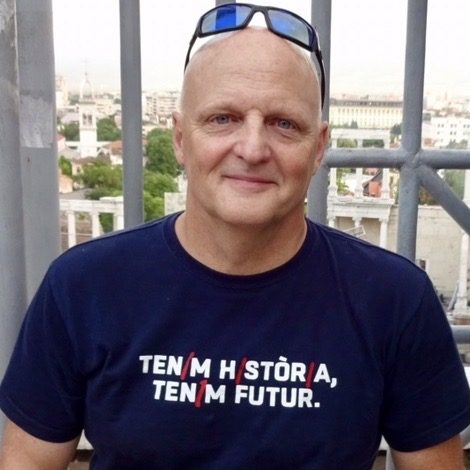The early 20th century Catalan philosopher and nationalist activist, Eugeni d’Ors was renowned for his aphorisms. The most oft-repeated of these concerned the thinker’s need to raise “the anecdote to a category.”
Ors was a humanist, and this being the case, his intellectual modus operandi was essentially accretional and synthesis-based in nature.
When we write as humanists, we select from the inventory of verbal metaphors we have acquired in the course of our lives to tell a story that we believe will enlighten and will capture the attention of our readers. In providing them with this carefully arranged series of “charged” anecdotes we trust that we are, in some way, facilitating their own ability to forge a broader and more categorical understanding of the concept or phenomenon under discussion.
Stripped of the self-indulgent dramatism he always brought to his life and work, Ors’ aphorism is little more than a pithy exhortation to engage in this process.
In general, scientific thinking works in the opposite direction. It looks at complex phenomena and seeks to understand them by analyzing their constituent parts and subsystems in great detail.
Though many seem to have forgotten it under the enormous pressures of academic hyperspecialization, there is an inherent yin-yang relationship between humanistic and scientific modes of explication.
The humanist who, in trying to explain a given social reality, ignores the gritty, and often highly significant details of the elements that make it up, will founder in a morass of vague assertions.
The scientist who seeks to explain the complexity of the same social phenomenon by fixating narrowly on one of its constituent realities, and drawing sweeping conclusions from it, is similarly condemned to grave imprecision.
If ever there was a field in which this inherent complementarity between these two dominant modes of thought must always be recognized and employed it is public health policy.
Owing to its enormous scope and complexity, public health demands both granular “micro” analyses and the ability to sketch broad and hopefully accurate narratives of large trends, forces and concerns. A skilled practitioner in the field must be deeply aware of the limits of his or her particular disciplinary purview and be disposed to good faith dialogue with others in the pursuit of the most effective and equitable solutions for the citizenry.
It is clear that nothing resembling the dual-track process I have just sketched out took place among those directing the US government’s response to the Covid-19 pandemic. And when we consider recently published in-depth accounts of the behaviors of the people involved in these efforts, such as those of Dr. Scott Atlas and Robert Kennedy Jr., there is every reason to believe that the imposition of what could be called “policy-making autism” was carried out by design.
Indeed, this intentional bad faith was clear to me as early as March of 2020, not because I then knew anything about the serial treacheries of characters like Anthony Fauci, Robert Redfield and Christian Drosten—I didn’t—but because I had spent much of the last quarter-century studying the pedagogy of nationhood; that is, the processes and mechanisms by which society’s sign-making elites seek to create and deploy new and embracing notions of “reality” among the general populaces nominally beholden to their power.
The first dead giveaway, as it usually is with such culture-planning operations, was the rigid lexical uniformity, and uncanny simultaneity of media messaging, especially in regard to the long-term historical significance of what is taking place.
No one with a modicum of proper intellectual restraint, or insight into the often serpentine routes of history, would ever deign to make prognostications about the dawn of a “new normal” in the midst of a crisis. That is, of course, unless he or she had a clear interest in establishing a narrative that through its early and frequent repetition, would effectively foreclose in all but the most hardy and self-confident thinkers the desire to pursue other interpretive possibilities.
The second was the absurdly open-ended nature of the new “war” in which—whether we agreed to it or not—we were now all said to be immersed.
When two decades or so ago, and the “War on Terror” was solemnly announced, I sarcastically commented to a number of friends, “And when it’s over, we’ll move on to the War on Original Sin..” Horror set in when not one of them chuckled, or even got my general drift.
Apparently, few of my interlocutors had ever pondered the historical dynamics of empire in any detail. More specifically, most seem never to have observed how, over time, the energies of every imperial leadership class eventually come to center on the task of justifying, to both the home-borne population and foreign victims alike, their monomaniacal and absurdly expensive need to project power.
The solution employed by US policy-makers to this classic late-imperial dilemma at the turn of the last century?
Declare war on a behavior—terrorism—, the definition of which is, of course entirely subjective. This, knowing full well that the preponderance of media power needed to imbue the wildly subjective term with a false aura of semantic solvency, and hence weaponizable potency in a given moment, was overwhelmingly on your side.
With this new enemy—polymorphic, omnipresent, and best of all, creatable on spec through media campaigns—the long anxious nights of imperial bureaucrats were finally brought to an end. Never again could their ever-expanding purchase on the lives of the proles at home and overseas be questioned. And, if someone had the temerity to do so, they could be shouted down (see preponderant media power above) as being selfishly uninterested in their fellow citizens.
Could the conceptual parallels between a “War on Terror” and the “War on Covid”—with its even more omnipresent, polymorphic, and fundamentally undefeatable “enemy”—be any clearer?
The third giveaway—perhaps the most telling—was the instant, lexically incorrect and eerily broad and simultaneous deployment of the term “case” in relation to the Corona phenomenon. Seeing this, it was immediately evident to me that we were once again being massaged or nudged, as had been the case in the years following September 11th, by what is sometimes called a “floating signifier” in linguistic and cultural analysis.
At the core of Saussure’s revolutionary restructuring of linguistics is the idea that all verbal meaning is relational; that is, we can only really truly understand a given word or utterance in its fullness if we are clued into the contextual armature “propping it up” within the semantic field at a given moment in time.
When we speak of floating or empty signifiers, we are referring to words or terms whose contextual armature is so vague or unclear as to deprive us of the ability to derive any clear or stable sense of meaning from them.
In recent decades, political and media leaders have learned just how useful the deployment of emotionally evocative, but contextually lacking signifiers can be in directing the citizenry to their desired ends.
“Weapons of Mass Destruction” is a classic example in this regard. What is exactly meant by the term and how it will concretely impact us is quite vague. And that’s just the point. They really don’t want or expect us to have a conversation aimed at actually regressing the exact chain of semantic relations (or lack thereof) undergirding the term. Rather, they want us to be left with a vague but palpable sense of dread.
In the matter of rising Covid “cases,” it is similarly implied that a really negative process is underway. But the exact extent of the threat, who is most likely to suffer from it, and how severely are all left unsaid. This is the malign genius of making so-called “cases,” deprived of any worthwhile context, the fulcrum of the Covid discourse.
Responsible policy-making and policy implementation in a democratic society rely heavily on public pedagogy, which in turn, can only work in a context of respect for those to be taught.
Those tasked with leading the government effort to combat Covid (Drs. Birx, Fauci and Redfield) had ample opportunity to demonstrate that respect by carefully and frequently providing the public with the context needed to make precise sense of those vaunted case numbers. If we are to believe Scott Atlas, he effectively implored them to do so in each of his personal encounters with them.
However, they resolutely refused to do so.
There are only two possible explanations for this. a) these people are much dumber than they seem and honestly did not comprehend the grave semantic deficiencies and spiritually-damaging effects of the term “cases” in the manner they were deploying it, or b) they were quite happy to repeatedly, indeed obsessively use this floating signifier with its clearly foreboding connotations, but near complete lack of articulated relation to what most people would want to know about palpable risks, as a means of training the public to effectively detach public discourse from its empirical moorings. For me, at least, there is little doubt as to which explanation rings more true.
Once this “mini-course” in fear-tinged mental disjunction was offered to the public and accepted by it with little visible pushback in the first weeks and months of the crisis, Fauci, Birx and Redfield, along with their chosen spokespeople at the CDC and in the media, were in effect, “off to the races.”
With the basic template we rely on to make reasoned risk assessments about our lives effectively shattered, millions lapsed into the mental state that has always been the programmatic end goal of those, like Bruce Jessen and James Mitchell, who design torture programs for the US government: “Learned helplessness.”
When an individual enters this regressed mental space, the stature of all those presented to him as authority figures—no matter their actual level of competence or coherence—rises dramatically.
Indeed, considerable research suggests that a lack of coherence or predictability in such authority figures only enhances the now psychically helpless person or group of persons’ estimation of the “authority figure’s” irreplaceability and excellence. This suggests that there may have been more than a little “method” in the apparent “madness” of Fauci’s notorious flip-flops on key policy issues.
For a certain part of the population, perhaps bereft of rituals and practices designed to help them transcend the crude, cruel and ambiguity-generating rhythms of our now largely transactional culture, the surrendering the self to authority can take on an almost religious allure.
In this state such people find a certain sort of peace and meaning, and in homage to it, they begin to gleefully spout, and enforce the sanctity of, the very disjunctive logic previously used by the leaders of the cult to render inert their normal critical faculties.
Person A: I am really scared about Covid.
Person B: Do you know what the chances of dying for someone your age who happens to catch Covid?
Person A: No.
Person B: Well, according to the latest CDC statistics your chances of survival if you get it are 99.987%.
Person A: But I know of the cousin of a friend who was my age and healthy and who died. I also read a news report about a healthy young person dying in New York the other day.
Person B: Yes, the reports you speak of may be true. But they point to very particular instances that might not be representative of general trends, and thus are not really helpful in helping you determine your actual risk. The only useful way to do that is by looking at broadly-constituted statistics.
Person A: I knew it. I just knew it. You really are one of those conspiracy-loving Covid deniers who is happy to just let lots of people die.
This dialogue is, with only slight variations, quite representative of dozens I have had in real life during the last 22 months, maintained often with “well-educated” people who, in no small percentage, can rightfully place MAs and PhDs after their names on resumes.
In short, during the last 22 months the anecdote has truly and massively been elevated to a category, but not in the way Eugeni d’Ors envisioned it as occurring.
No, the anecdote has risen and become the category in the minds of millions of Americans, many of whom, at least before February of 2020, were believed to be well-versed in logical progressions of reason and well-ordered argumentation?
How did this happen? No one, of course, knows for sure.
But if we read books like Laura Doddsworth’s superb A State of Fear and Thaler’s ever-creepy Nudge, the outlines of an answer emerge fairly quickly. And it goes something like this.
During the last three decades and possibly more, Western governments working hand in glove with large corporate interests have spent enormous energy and resources on perception management techniques designed to effectively undermine citizens’ ability to oppose the policies that these same elites, in their incandescent wisdom, have decided are best for the people.
The attacks of September 11th gave these corporate and government leaders both the additional funds and the political latitude they needed to greatly accelerate work on these culture-planning processes. The Covid crisis has put the whole game on steroids.
We have many ways of ignoring these frightening developments, most common and intellectually lazy of these being to dismiss them without examination under the rubric of “conspiracy theories.”
We must be better and braver than that, pledging, despite our fears, our discomforts and our incredulity, to go wherever the signs take us.
The dignity and freedom of our children and our grandchildren depends heavily on our willingness to do so.
Published under a Creative Commons Attribution 4.0 International License
For reprints, please set the canonical link back to the original Brownstone Institute Article and Author.









